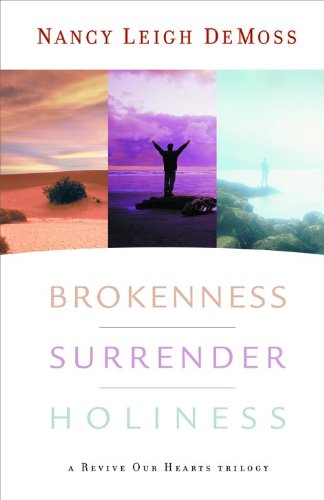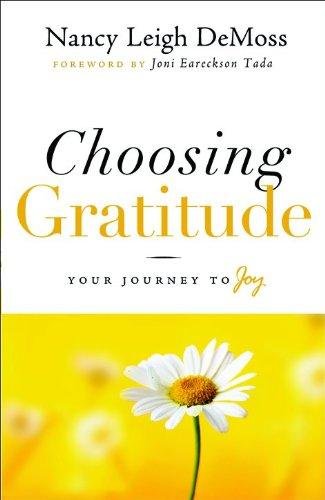
Quotes by Nancy Leigh DeMoss
I am acknowledging that [the Bible] is not an ordinary Book I am about to read but a supernatural, and, therefore, I need the assistance of its Author.
Do you want to increase your hunger for the Lord? Try weaning yourself from the world’s diet- be prepared for some withdrawal symptoms when you turn off the radio and the TV and eliminate unnecessary activities. Then begin feeding on the Word of God. At first, it may seem bland and boring; but in time, you will discover that it satisfies in a far deeper, richer way than those things you once thought were so filling.
Why are we experiencing such an epidemic of open- and not-so-open- sin in the church today?… [Because] we have promoted a “gospel” that says it is possible to be a Christian while stubbornly refusing to address practices or behaviors we know are sinful. We have accepted the philosophy that it’s OK for Christians to look, think, act, and talk like the world. We have made it an offense to admonish people about their sin, either privately or, when necessary, publicly. If only we were as loath to commit sin as we are to confront it!
One of the most valuable aids to meditation is Scripture memorization. In fact, when I encounter someone who is battling discouragement or depression, I often ask two questions: “Are you singing to the Lord?” and “Are you memorizing Scripture?” These two exercises are not some magical formula to make all our problems go away, but they do have incredible power to change our perspective and attitude toward the issues we are facing.
As you read, pause frequently to meditate on the meaning of what you are reading. Absorb the Word into your system by dwelling on it, pondering it, going over it again and again in your mind, considering it from many different angles, until it becomes part of you.
O God, make us desperate, and grant us faith and boldness to approach Your throne and make our petitions known, knowing that in doing we link arms with Omnipotence and become instruments of Your eternal purposes being fulfilled on this earth.
I also know that there is only one place where that angry, reactive, overwhelmed self can be transformed – the same place that Mary chose – the feet of Jesus… When I get into His presence, the whole world looks different. When I draw close to His heart, I find mercy when I know I deserve judgment; I find forgiveness for all my petty, selfish ways; I find grace for all my inadequacies; I find peace for my troubled heart; I find perspective for my distorted views. In Him, I find an eye in the midst of the storm. Oh the storm around me may not immediately subside; but the storm within me is made calm.
Once we agree with God that we exist for His pleasure and His glory, we can accept whatever comes into our lives as part of His sovereign will and purpose. We will not resent, resist, or reject the hard things, but embrace them as friends, sovereignly designed by God to make us more like Jesus and to bring glory to Himself.
In contrast to the wise woman, the foolish woman is not content to be a keeper at home. She is not satisfied with where God has put her. One of the things the feminist movement has done so successfully is to stir up discontent in women with being homemakers and to convince them that other pursuits can increase their sense of self-worth… Fueling discontent and pushing women out of their homes in search of greater meaning and satisfaction has resulted in off-the-chart stress levels for many women who can no longer survive without pills and therapists… The greatest spiritual, moral, and emotional protection a woman will ever experience is found when she is content to stay within her God-appointed sphere. This does not mean that she never leaves her house, but rather that her heart is rooted in her home and that she puts her family’s needs above all other interests and pursuits.
It should come as no huge surprise that the secular world is confused and off-base about the identity and calling of women. But what I find distressing is the extent to which (this) has taken hold even within the evangelical world. We see the fruit of that revolution as prominent Christian speakers, authors, and leaders promote an agenda, whether subtly or overtly, that encourages women to define and discover their worth in the workplace, in society, or at church, while minimizing (or even at the expense of) their distinctive roles in the home as daughters, sisters, wives, and mothers – as bearers and nurturers of life, caregivers, as those privileged and responsible to shape the heart and character of the next generation. The feminist revolution was supposed to bring women greater fulfillment and freedom. It was supposed to make us feel better about ourselves; after all, “You’ve come a long way, baby!” But we see the poisoned fruit of the revolution in the eyes and pitiable cries of women who are drowning in the quagmire of serial divorce and remarriage and wayward children; women who are utterly exhausted from the demands of trying to juggle one or more jobs, function as single parents and be active in church; women who are disoriented and confused, who lack sense of mission, vision, and purpose for their lives and who are perpetually, pathetically shrouded in woundedness, self-doubt, resentment, and guilt.
Again and again, God’s Word reveals that He is not as concerned about the depth or extent of the sin we commit as He is about our attitude and response when we are confronted with our sin.
Worship is a believer’s response to God’s revelation of Himself. It is expressing wonder, awe, and gratitude for the worthiness, the greatness, and the goodness of our Lord. It is the appropriate response to God’s person, His provision, His power, His promises, and His plan.
Pride manifests itself in so many subtle, but lethal ways… In a hidden desire for the praise and admiration of men, an insistence on being “right,” the desire to be noticed and appreciated, fear of rejection, or just pre-occupation with myself my feelings, my needs, my circumstances, my burdens, my desires, my successes, my failures. These are all fruits of that deadly root of pride.
We have made it an offense to admonish people about their sin, either privately or, when necessary, publicly. If only we were as loath to commit sin as we are to confront it!
Regardless of the reaction of others, one thing is certain: True worship and devotion will make our lives fragrant and will perfume the environment around us. Our homes, our churches, even our places of work will bear the sweet scent of our devotion. Most important, the Lord Jesus will be pleased. And ultimately that is all that really matters.
I know of no way to experience unbroken union and communion with our beloved Lord Jesus apart from a conscious, deliberate choice to spend time alone with Him each morning.
I am convinced that prayerlessness:
1. Is a sin against God (1 Sam. 12:23).
2. Is direct disobedience to the command of Christ (“watch and pray,” Mt. 26:41).
3. Is direct disobedience to the Word of God (“pray without ceasing,” 1 Thes. 5:17).
4. Makes me vulnerable to temptation (“watch and pray so that you will not fall into temptation,” Mt. 26:41).
5. Expresses independence – no need for God.
6. Gives place to the Enemy and makes me vulnerable to his schemes (Eph. 6:10-20; Dan. 10).
7. Results in powerlessness.
8. Limits (and defines) my relationship with God.
9. Hinders me from knowing His will, His priorities, His direction.
10. Forces me to operate in the realm of the natural (what I can do) versus the supernatural (what He can do).
11. Leaves me weak, harried, and hassled.
12. Is rooted in pride, self-sufficiency, laziness, and lack of discipline.
13. Reveals a lack of real burden and compassion for others.
Don’t ever forget that you cannot do what God has called you to do. You cannot parent that child, love that husband, care for that elderly parent, submit to that boss, teach that Sunday school class, or lead that small-group Bible study. God specializes in the impossible, so that when the victory is won and the task is complete, we cannot take any credit. Others know we didn’t do it, and we know we didn’t do it. We must always remember that we can only live the Christian life and serve God through the power of His Holy Spirit. As soon as we think we can handle it on our own, we become useless to Him. We have to be willing to get out of the way, let God take over, and let Him overshadow us.
Don’t assume you have to be extraordinary to be used by God. You don’t have to have exceptional gifts, talents, abilities, or connections. God specializes in using ordinary people whose limitations and weaknesses make them ideal showcases for His greatness and glory (1 Cor. 1:26-29).
We need revival:
-when we do not love Him as we once did.
-when earthly interests and occupations are more important to us than eternal ones.
-when we would rather watch TV and read secular books and magazines than read the Bible and pray.
-when church dinners are better attended than prayer meetings.
-when concerts draw bigger crowds than prayer meetings.
-when we have little or no desire for prayer.
-when we would rather make money than give money.
-when we put people into leadership positions in our churches who do not meet scriptural qualifications.
-when our Christianity is joyless and passionless.
-when we know truth in our heads that we are not practicing in our lives.
-when we make little effort to witness to the lost.
-when we have time for sports, recreation, and entertainment, but not for Bible study and prayer.
-when we do not tremble at the Word of God.
-when preaching lacks conviction, confrontation, and divine fire and anointing.
-when we seldom think thoughts of eternity.
-when God’s people are more concerned about their jobs and their careers, than about the Kingdom of Christ and the salvation of the lost.
-when God’s people get together with other believers and the conversation is primarily about the news, weather, and sports, rather than the Lord.
-when church services are predictable and “business as usual.”
-when believers can be at odds with each other and not feel compelled to pursue reconciliation.
-when Christian husbands and wives are not praying together.
-when our marriages are co-existing rather than full of the love of Christ.
-when our children are growing up to adopt worldly values, secular philosophies, and ungodly lifestyles.
-when we are more concerned about our children’s education and their athletic activities than about the condition of their souls.
-when sin in the church is pushed under the carpet.
-when known sin is not dealt with through the biblical process of discipline and restoration.
-when we tolerate “little” sins of gossip, a critical spirit, and lack of love.
-when we will watch things on television and movies that are not holy.
-when our singing is half-hearted and our worship lifeless.
-when our prayers are empty words designed to impress others.
-when our prayers lack fervency.
-when our hearts are cold and our eyes are dry.
-when we aren’t seeing regular evidence of the supernatural power of God.
-when we have ceased to weep and mourn and grieve over our own sin and the sin of others.
-when we are content to live with explainable, ordinary Christianity and church services.
-when we are bored with worship.
-when people have to be entertained to be drawn to church.
-when our music and dress become patterned after the world.
-when we start fitting into and adapting to the world, rather than calling the world to adapt to God’s standards of holiness.
-when we don’t long for the company and fellowship of God’s people.
-when people have to be begged to give and to serve in the church.
-when our giving is measured and calculated, rather than extravagant and sacrificial.
-when we aren’t seeing lost people drawn to Jesus on a regular basis.
-when we aren’t exercising faith and believing God for the impossible.
-when we are more concerned about what others think about us than what God thinks about us.
-when we are unmoved by the fact that 2.5 billion people in this world have never heard the name of Jesus.
-when we are unmoved by the thought of neighbors, business associates, and acquaintances who are lost and without Christ.
-when the lost world around us doesn’t know or care that we exist.
-when we are making little or no difference in the secular world around us.
-when the fire has gone out in our hearts, our marriages, and the church.
-when we are blind to the extent of our need and don’t think we need revival.
Each of us is accountable to God for our personal holiness. At the same time, God never intended that we should battle sin single-handedly… Is it sometimes hard to confess my need and ask for help? Absolutely! It requires that I humble myself and acknowledge that I don’t have it all together. The very pride that keeps you from taking off your mask and getting real is the same pride that will cause you to fall into sin. Humbling yourself by letting others into your life and allowing them to help you and hold you accountable will release the sanctifying, transforming grace of God in your life.
Holiness is the only path to happiness.
The Christian life is not about all the things we do for God- it’s about being loved by Him, loving Him in return, and walking in intimate union and communion with Him.
What [others] most need is to see in you a reflection of what God is like and of the transforming power of the Gospel. Your life can create hunger and thirst for God in others’ lives and can be a powerful instrument in the hand of the Holy Spirit to draw their hearts to Christ.
Being disconnected from the local church, for whatever reason, is a dangerous way to live. Not only do these “ lone rangers” miss out on the blessings of functioning within the context of the body of Christ, but like lone sheep away from the safety of the flock and the watchful care of the shepherd, they are vulnerable to predators of every sort.
Holiness, The Heart God Purifies, Moody Publishers, p. 137. Get this book!
Jesus said, “Blessed are the poor in spirit” – contrary to what we would expect, brokenness is the pathway to blessing! There are no alternative routes; there are no short-cuts. The very thing we dread and are tempted to resist is actually the means to God’s greatest blessings in our lives.
Brokenness, The Heart God Revives, Moody Publishers, 2002, p. 105. Get this book!
Proud people have a feeling – conscious or subconscious – that “this ministry is privileged to have me and my gifts.” They focus on what they can do for God. Broken people have a heart attitude that says, “I don’t deserve to have any part in this ministry”; they know that they have nothing to offer God except the life of Jesus flowing through their broken lives.
Proud people focus on the failures of others and can readily point out those faults. Broken people are more conscious of their own spiritual need than of anyone else’s.
Brokenness, The Heart God Revives, Moody Publishers, 2002, p. 88. Get this book!
The Word, circumstances, and other believers – these can all be tools to show us our need and create opportunities to choose the pathway of brokenness. The Spirit of God is the arm that wields each of these instruments to bring us to a point of brokenness. However, we must respond to His initiative.
Brokenness, The Heart God Revives, Moody Publishers, 2002, p. 131. Get this book!
“Exaggeration” is actually a proud, unbroken word for “lying.”
Brokenness, The Heart God Revives, Moody Publishers, Chicago, 2002, p. 139. Get this book!
God’s goal in saving you was not just to make your few years on planet Earth easier or more enjoyable. He had an eternal end in view. His intent was to make you holy, as He is holy, that you might perfectly glorify Him, that you might bring Him pleasure, and that you might enjoy intimate fellowship with Him for all eternity.
Holiness, The Heart God Purifies, Moody Publishers, p. 51. Get this book!
The fact is, there is a “course” that addresses every issue we will ever face. The Teacher loves to meet one-on-one with His students, so that He can tailor the course to our needs. He is willing to hold class every day that we are willing to meet. We already have the Textbook, which was written by the Teacher Himself. Parts of it can be difficult to grasp. But the Teacher is always available – twenty-four hours a day – to help us understand.
True worship begins with brokenness and humility over whatever God reveals to us in His Word. Poverty of spirit and mourning over our sin lead to genuine repentance, which in turn leads to forgiveness. Forgiveness will produce freedom – freedom from guilt and bondage. When we have freedom that has been birthed out of brokenness, repentance, and forgiveness, we will have a greater capacity for love – supernatural ability to love God and to love those who are unlovable – and for worship. And of course, true love and worship will lead up back to a new level of brokenness, which leads to greater and deeper repentance, increased forgiveness, newfound freedom, and an even greater capacity for love and for worship.
Brokenness, The Heart God Revives, Moody Publishers, 2002, p. 117. Get this book!
How would you finish [this] sentence? “One thing have I desired of the Lord; that will I seek after _________.” What is the greatest desire and longing of your heart? In the answer to that question lies the explanation for much of what we do – our choices, our priorities, our use of time, the way we spend money, the way we respond to pressure, whom or what we love. [King] David’s answer (see Psm. 27:4) reveals why God could say, “This man’s heart beats like mine.”
It’s bad enough for me to make choices that hurt my own relationship with God. How much more serious is it to be the cause of someone else deciding to sin? Not only must I choose the pathway of holiness for God’s sake and for my own sake; I must also do it for the sake of others.
Holiness, The Heart God Purifies, Moody Publishers, p. 63. Get this book!
An evidence that our will has been broken is that we begin to thank God for that which once seemed so bitter, knowing that His will is good and that, in His time and in His way, He is able to make the most bitter waters sweet.
We do need to guard against making absolutes out of personal standards that are not specified in Scripture, or assuming that others are sinning if they don’t adopt our standards about issues that may not be traps for them. But why are we so prone to defend choices that take us right to the edge of sin, and so reluctant to make radical choices to protect our hearts and minds from sin?
Holiness, The Heart God Purifies, Moody Publishers, p. 113. Get this book!
Though my natural instinct is to wish for a life free from pain, trouble, and adversity, I am learning to welcome anything that makes me conscious of my need for Him. If prayer is birthed out of desperation, then anything that makes me desperate for God is a blessing… Puritan pastor William Gurnall makes this point in his writings, “The hungry man needs no help to teach him how to beg.”
The fact is, the higher up we find ourselves in terms of power, influence, and wealth – the more people look up to us – the more vulnerable we are to pride and self-deceit, and the more prone we are to be blind to our spiritual needs and deficiencies. Once we are established in a position of influence, we have a reputation to maintain. We have a lot to lose if we get honest about our real spiritual needs. For most of us, the subtle encroachment of pride is more dangerous, and more likely to render us useless to God and others, than any other kind of failure.
Brokenness, The Heart God Revives, Moody Publishers, Chicago, 2002, p. 81-82. Get this book!
Revival is not just an emotional touch; it’s a complete takeover!
Brokenness, The Heart God Revives, Moody Publishers, 2002, p. 38. Get this book!
Holiness is not just for some select few spiritual giants; it is not just for pious people who sit around all day with nothing to do but “be holy”… “Everyone who names the name of the Lord” is called to live a holy life!
Holiness, The Heart God Purifies, Moody Publishers, p. 35-36. Get this book!
Why care about being holy? Why be willing to say no to your flesh and yes to God, day in and day out? Because the world desperately needs to see what God is like. Because it is your created purpose and your ultimate destiny to be holy. Because of the price Jesus paid to make you holy. Because you are a saint. Because holy people get to see and know God. Because you’re getting ready to move to a place where there is no sin. And because your example may inspire someone who is watching you to choose or reject the pathway of holiness.
Holiness, The Heart God Purifies, Moody Publishers, p. 65-66. Get this book!
For Jesus, time alone with God was not an option… The gospel of Luke tells us that “Jesus often withdrew to lonely places and prayed” (Lk. 5:16)… This is precisely where you and I so often miss out on all that God has for us. Unlike Jesus, we attempt to live life in our own energy. We think we can keep giving out without getting replenished. Then, wearied and weakened by the demands of life and ministry, we become impatient and annoyed with the very ones God has sent us to serve. Rather than exhibiting a gracious, calm, joyous spirit, we become uptight, frazzled, and frenzied (people), resenting, rather than welcoming, the people and opportunities God brings into our lives.
As Christians, we are called to maintain lives that can be “toured” by outsiders at any time, without embarrassment. A commitment to holiness means having a life that is always “ready for company” and open for inspection – a life that can stand up to scrutiny – not just in the obvious things, but in the hidden places where most might not think to look.
Holiness, The Heart God Purifies, Moody Publishers, p. 152. Get this book!
We want gain without pain; we want the resurrection without going through the grave; we want life without experiencing death; we want a crown without going by way of the Cross. But in God’s economy, the way up is down.
Brokenness, The Heart God Revives, Moody Publishers, 2002, p. 49-50. Get this book!
Mark it down – your progress in holiness will never exceed your relationship with the Word of God.
Holiness, The Heart God Purifies, Moody Publishers, p. 131. Get this book!
Subconsciously perhaps, we tend to think of certain sins as “mostly harmless” – especially if we’ve played with them for years and never been seriously bitten… What makes sin so heinous and grievous is that it is against God…for it violates His holy law and character.
Holiness, The Heart God Purifies, Moody Publishers, p. 70-71. Get this book!
I learned early on that to be “set apart” is not a punishment; it is not an attempt on God’s part to deprive us or to condemn us to a cheerless, joyless lifestyle. It is a priceless privilege – it is a call to belong, to be cherished, to enter into an intimate love relationship with God Himself, much as a groom declares his intent to set his bride apart from all other women to be his beloved wife; to fit into the grand, eternal plan of our redeeming God for this universe; to experience the exquisite joys and purposes for which we were created; to be freed from all that destroys our true happiness.
Holiness, The Heart God Purifies, Moody Publishers, p. 33-34. Get this book!
Throughout Scripture, God is seen as a faithful, devoted Husband who is intensely jealous for an exclusive relationship with His wife… The next time you sin, picture your husband (spouse) locked in a passionate embrace with a woman he met over the Internet… Try to feel the intensity of the shock, the rejection, the pain, the anger that would well up from the innermost part of your being upon discovering the truth. Then realize that what you would experience would be just a minuscule glimpse of the way God feels about our sin.
Holiness, The Heart God Purifies, Moody Publishers, p. 73. Get this book!
True holiness isn’t cold and deadening – it’s warm and inviting. It’s irresistible. Those who think otherwise have never seen it, but only its caricatures.
Holiness, The Heart God Purifies, Moody Publishers, p. 10. Get this book!
To be holy is to be wholly satisfied with Christ. Above all, it is to reflect the beauty and the splendor of our holy Lord in this dark world. In pursuing holiness, you will fulfill and experience all that God had in mind when He created you.
Holiness, The Heart God Purifies, Moody Publishers, p. 22. Get this book!
Why do we make holiness out to be some austere obligation or burden to be borne, when the fact is that to be holy is to be clean, to be free from the weight and the burden of sin? Why would we cling to our sin any more than a leper would refuse to part with his oozing sores, given the opportunity to be cleansed of his leprosy?
Holiness, The Heart God Purifies, Moody Publishers, p. 42. Get this book!
Most of us have become so familiar with sin that we no longer see it as a deadly monster. Sin is more dangerous than wild bears, more deadly than blazing forest fires. Ask Nebuchadnezzar, who lost his mind because he refused to deal with his pride. Ask Samson, who was reduced to a pathetic shred of a man because he never got control over the lusts of his flesh. Ask Achan and Ananias and Sapphira, who all lost their lives over “small,” secret sins.
Holiness, The Heart God Purifies, Moody Publishers, p. 79. Get this book!
True brokenness is a lifestyle – a moment-by- moment lifestyle of agreeing with God about the true condition of my heart and life – not as everyone else thinks it is but as He knows it to be.
Brokenness, The Heart God Revives, Moody Publishers, 2002, p. 53. Get this book!
Brokenness is the shattering of my self-will – the absolute surrender of my will to the will of God. It is saying “Yes, Lord!” – no resistance, no chafing, no stubbornness – simply submitting myself to His direction and will in my life.
Brokenness is the stripping of self-reliance and independence from God. The broken person has no confidence in his own righteousness or his own works, but he is cast in total dependence upon the grace of God working in and through him.
Brokenness, The Heart God Revives, Moody Publishers, 2002, p. 54. Get this book!
Unbroken people…cannot rejoice over repentant sinners. They are consumed with a sense of their own rights and expectations. And if they don’t get the treatment they feel they deserve, they throw a pity party for themselves.
Brokenness, The Heart God Revives, Moody Publishers, 2002, p. 79. Get this book!
Proud people keep others at arm’s length. Broken people are willing to take the risks of getting close to others and loving intimately.
Brokenness, The Heart God Revives, Moody Publishers, 2002, p. 94. Get this book!
Recommended Books




